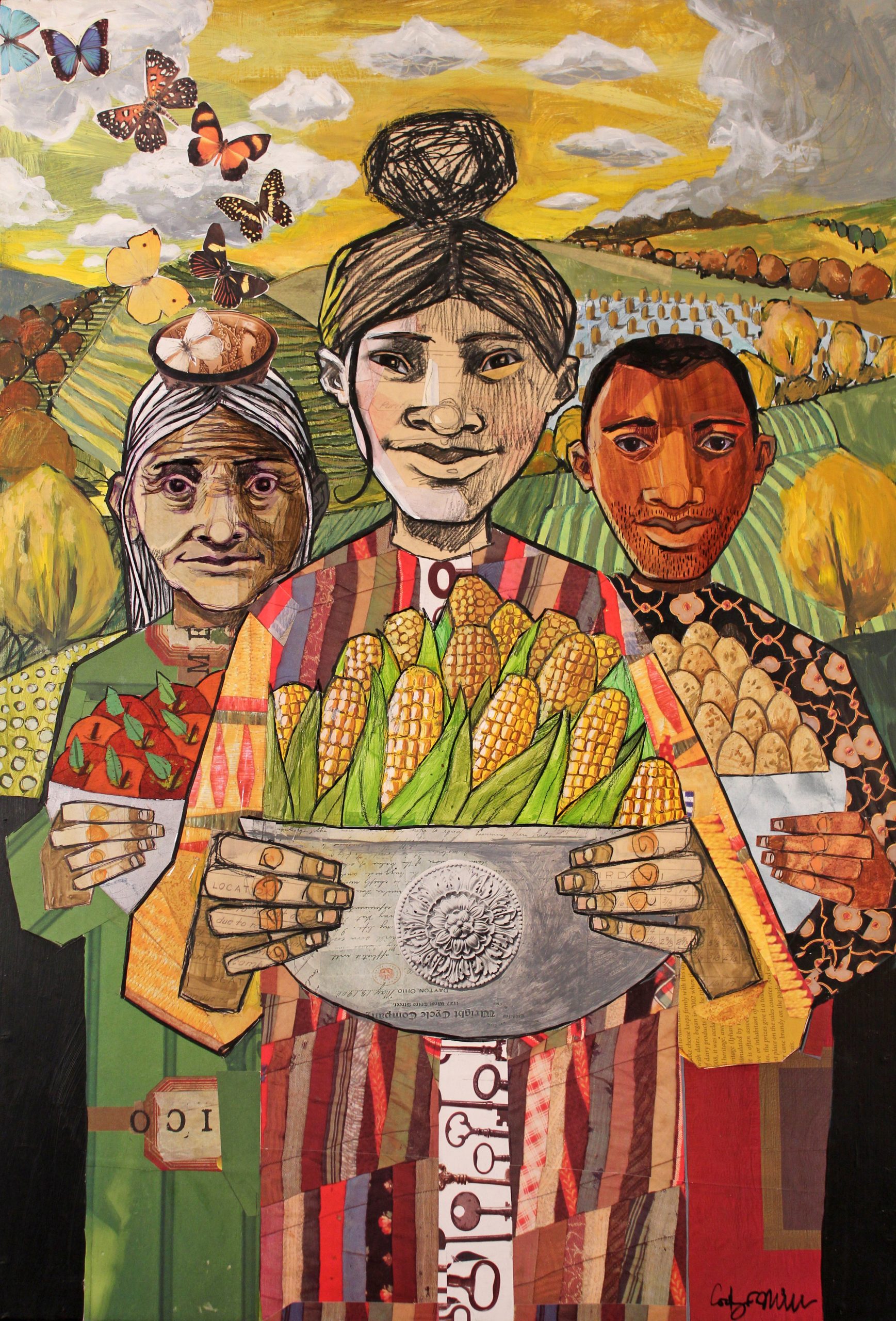What My Grandmothers Taught Me
Lesson Five

Lesson Five: Ruth and Redemption
Primary Scripture: Ruth 3–4
What is Redemption?
I love to sing the hymn “There is a Redeemer”; I especially love when the tune modulates up a semitone in the last verse, and how everyone’s voices (and hearts) lift with the music. I also love the wonderful soprano aria “I know that my Redeemer liveth,” from Handel’s Messiah. Handel turns the text from Job 19:25–26 into a glorious affirmation of Resurrection faith.
Even though I love songs about redemption, I’d never really given much thought to the actual meaning of the word redemption or the word redeemer. I guess I’d mainly heard redemption used in the context of personal salvation: Christ as my redeemer and my relationship with Christ leading to my personal salvation.
It wasn’t until I studied Hebrew, and then especially the Book of Ruth, that this word took on a deeper and richer meaning for me. The Hebrew usually translated as “redeemer” is go’el. The sense of this word is always connected to relationship; another common translation is “near kinsman.” When we hear the word “redeemer,” we should be thinking “family” and “relatedness.” Immediately, a deeper meaning is uncovered. The nearest kin/redeemer had the right and responsibility to keep the family together: not just with each other, but also with the land that was the inheritance gifted by God to that family. So, if a person found themselves in financial hardship through poor harvests, war, or widowhood (to name a few common issues), and had to sell either themselves or a piece of land to pay off debts, the go’el would be responsible for buying back the person or the land.
Similarly, if an injury was done to a member of the family, it was the right and responsibility of the go’el to make sure of redress. Redress might involve anything from demanding payment to committing a revenge killing. In ancient law, such a killing would be seen as just, and therefore not punishable. (Thankfully, we have bodies of law that have taken on this role for us.) A heavy weight of responsibility lay on the shoulders of the go’el. A family would rightly hope that such a person would be someone of judgment and wisdom, who had a strong sense of their position as head of the family, and a thorough concern for each member of the family and for the family’s land.
In other words, while redemption of individuals was certainly an important part of the idea of redemption, the good of the whole family and the wider community was always an important part of the concept. “Wider community” included land, as well as generations past and future.
These last two chapters of Ruth provide us with the most vivid picture of “redemption” in the Bible! Here are ordinary people, doing ordinary human things like caring for family, sorting out land ownership, and sifting through family relationships to honor rights and responsibilities of the living as well as the dead. And they are doing it in a way that looks towards the good of all. Boaz doesn’t just tramp in, in all his power and wealth, and take over. First, he makes sure that the “nearer kinsman,” the man with the right to be go’el, has all the facts before him and has a chance to take up his responsibilities. Boaz acts only when the other person has turned down the opportunity.
Ruth’s place in the whole narrative of redemption of a family, and therefore of a nation, is the most powerful message of the story. Her “outsider” status as a Moabite demonstrates that redemption does not stop with an individual. Redemption flows out beyond the family circle, to strangers and nations, and even to traditional enemies.
When I sing the words “There is a Redeemer,” I need to keep Ruth in mind, and not get so caught up in my own sense of belonging in God’s family that I forget that this belonging must flow out beyond myself, even to those for whom I feel no kinship or liking. If Christ is our Redeemer, Ruth reminds us that Christ is everyone’s Redeemer. All of us, including our earth community, belong together under God’s nurturing, freeing care. Christ invites us into the on-going task of redemption as we live with each other and with the earth.
“Thank you, O my Father, for giving us your Son, and leaving your Spirit till the work on earth is done.” (“There Is a Redeemer,” Glory to God, 443)
Merryl L. Blair
author of the 2021-2022 PW/Horizons Bible Study
******
Purchase a What My Grandmothers Taught Me bible study book and study along with us.
Call 800/533-4371 and order product #HZN21100 or order online
